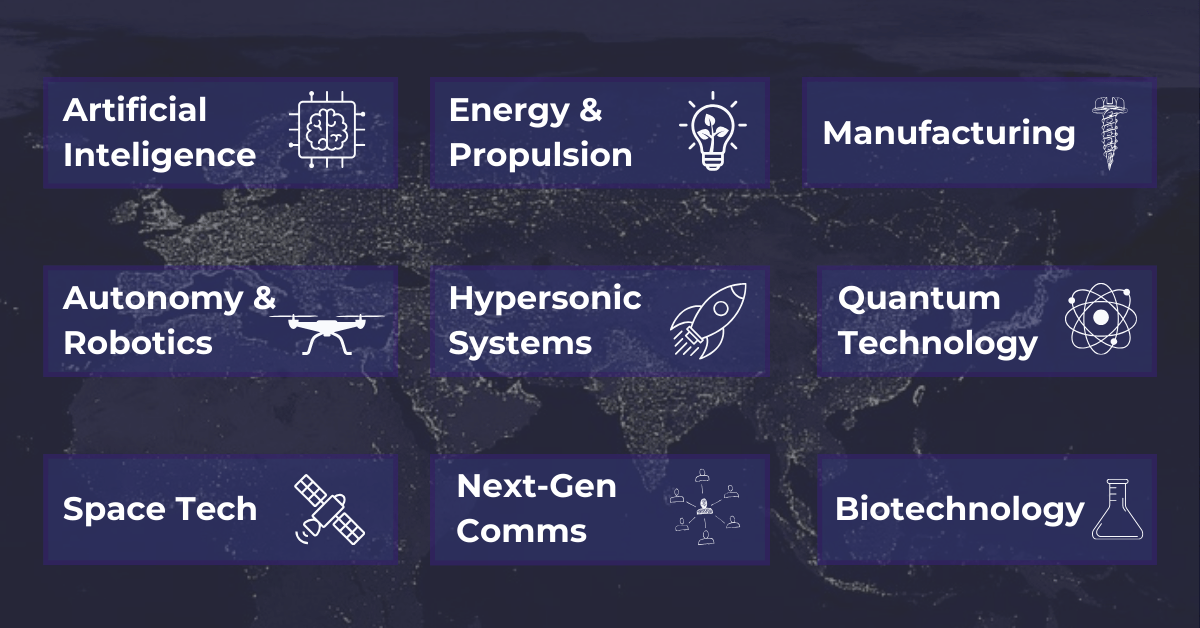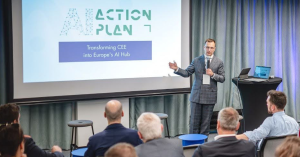Only have 1 minute? Here are 3 key takeaways:
- The NATO Innovation Fund (NIF), a €1 billion multi-sovereign venture capital fund, conducted an information session at Sofia Tech Park to showcase opportunities for Bulgarian tech startups.
- Supporting innovation in emerging technologies, such as AI, quantum technologies, and biotechnology, is crucial to NATO’s priorities.
- NIF’s commitment is to support startups from Seed to Series B funding stages.
NATO Innovation Fund, the world’s first multi-sovereign venture capital fund, held an information session today about the opportunities of their €1B fund for an invеstmеnt period of 15 years. The meeting took place in Sofia Tech Park with the participation of the Innovation Minister Milena Stoycheva, her deputy Martin Gikov, representatives of the NATO Innovation Fund and Bulgarian companies, and experts from the Innovation Ministry.
The main objective of the event was to highlight the potential opportunities that the Bulgarian tech startup ecosystem could benefit from NIF’s funding. Milena Stoycheva, The Minister of Innovation and Growth in Bulgaria, said “Bulgaria is a rising star”, in terms of perspective and outlook in the innovation scene.
The security landscape and the constantly shifting security threats, geopolitical risks and tensions, and the energy crisis are part of the reasons for establishing NIF, as a way to secure NATO’s technological edge through innovation. Benjamin Balmforth, Senior Associate at NIF, gave further insights into the fund’s structure and operation.
NIF focuses on 9 emerging and disruptive technologies aligned with NATO’s priorities. They include AI, quantum technologies, energy and propulsion, biotechnology, space tech, and more.

Tech companies from all 23 European NATO member countries would be еligiblе to apply. NIF’s sub-fund 1 will combine 80-90% direct investment into startups, with potеntial for rapid adoption, and 10-20%, indirect investments, through other dееp tеch VCs, supporting thеir portfolio companies with strong adoption potential.
Their standpoint would be as a regular VC fund with a slightly longer period, compared to the usual 10-year time span, with 8 years of investing and 7 years for harvesting. Balmforth shared that NIF will be present at the main deep tech conferences and close to founders and other venture capital firms. He also added that they will focus on European companies, having an international span, and providing opportunities for broader markets. The fund will support startups through Seed to Series B funding, to enhance the development and deployment of new technological products.
NIF’s internal team, autonomous from NATO, includes Andrea Traversone as a Managing Partner, previously in charge of Amadeus Capital Partners, one of Europe’s leading deep tech venture capital firms. Patrick Schneider-Sikorsky is leading the ecosystem building at the NIF and is responsible for deep tech entrepreneurship and innovation in Central and Eastern Europe.
Deep tech is a focus area also for the European Innovation Council, which aims to support technologies with the potential to scale up internationally and become a market fit.
In the meeting, NIF and EIC representatives shared that they will be working closely in identifying emerging new technologies and further developing the innovation ecosystem in Europe. Bulgaria’s GATE Institute is a test center for the Alliance in the field of Big Data and Artificial Intelligence, as part of NATO’s Defense Innovation Accelerator for the North Atlantic (DIANA). Dronamics, the company developing aerial systems for shipping commercial and special cargo applications, and EnduroSat, a provider of software-flexible NanoSatellites and space services, are just a few examples of the growing defense technology startup landscape within the Bulgarian ecosystem.








